Measuring technology: A key for series production of electric drive
May 20, 2022 3:41 pm
Volkswagen and ZEISS are working together to solve challenges.
Volkswagen and ZEISS are working together to solve challenges in the quality assurance of electric drives
The Volkswagen components plant in Salzgitter manufactures important components for the APP 310, an electric drive which will make electromobility accessible to a wide range of customers starting this year. The drive’s innovative hairpin stator concept presented entirely new challenges for quality assurance. The answer came in the form of a measurement solution from ZEISS Industrial Quality Solutions. Now, large-scale series production of the electric drive can proceed unobstructed.
A maximum torque of 310 newton meters, 204 PS and a range of 550 kilometers. These are the basic specifications on the VW ID.3, Volkswagen‘s first purely electric production vehicle. The compact car is the first in a series of electric vehicles planned by the Volkswagen group, whose consistent efforts to go electric are nearly unmatched by any other automobile manufacturer. And VW‘s electric future is about to become reality: soon, up to 500,000 ID.3 cars are expected to roll off the assembly line in Germany alone. Additional production facilities in countries with high demand for electric cars, such as China, will see this quantity increase even further. Essential components of the APP 310 electric drive — part of Volkswagen‘s modular electric drive matrix (MEB) platform — are produced in the Volkswagen Group Components plant in Salzgitter. These include the rotor and the stator. For the stator, Volkswagen has opted for an innovative design using hairpin technology. This enables the stators to be manufactured in cycle times similar to those used in combustion engines, but this isn‘t the only advantage: “The hairpin engine is noticeably more powerful than standard electric drives, and it‘s also significantly lighter,“ explains Philip Kurz, who is responsible for engine design and testing at the components plant in Salzgitter. This, says Kurz, is a technology that many manufacturers are working on, “but we are without a doubt the first to achieve large-scale series production of it.“ But an essential piece of the puzzle, quality assurance, initially presented the plant with a problem. The nature of the hairpins makes it impossible to measure them using the tactile or optical methods traditionally used in the manufacture of engines. For this reason, ZEISS has been working with Volkswagen over the past year to develop a measuring solution which meets all of VW‘s requirements and which enables the automaker to begin large-scale series production of its electric vehicles as planned.
“I need good equipment from suppliers who understand what is at stake. ZEISS makes outstanding, thoroughly developed products.”
-Philips Kurz, Engine Design and Testing.
Quality assurance for an entirely new kind of engine manufacturing
The new stator used in the APP 310, as the electric drive is called internally, uses copper-coated hairpins instead of traditional copper wire coil. In an automated process, these are bent into the shape of oversized hairpins, as the name suggests. Due to the nature of the hairpins and the process used to manufacture them, the effectiveness of traditional measuring technology proved limited, explains Pascal Schmidt, a member of the quality assurance team in Salzgitter. “Copper is easily deformed, which is why we can‘t use tactile methods. Also, it is shiny and semi-transparent, which makes it difficult for optical sensors to detect.
 Hairpins made of coated copper place new demands on measurement technology.
Hairpins made of coated copper place new demands on measurement technology.
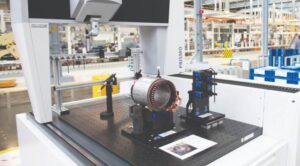 The fully assembled stator is reproducibly fixed on a ZEISS device.
The fully assembled stator is reproducibly fixed on a ZEISS device.
“This is compounded by the fact that the shape of the hairpins in production does not match the shape they have when they are installed as a group into the notches on the stator. And, last but not least, the“virtual installation envelope” demanded an entirely new approach to quality assurance in engine manufacturing. The winding head, which is comprised of over 100 hairpins, must be scanned with sensors. The virtual installation envelope corresponds to the dimensions of the electric drive housing, and under no circumstance may the hairpins be allowed to come into contact with it. Hence, Volkswagen needed to find a measurement solution capable of handling the hairpin material while also being capable of scanning the entire winding head and the hairpins in both their production state and their installation state. They also needed to develop an efficient measuring strategy capable of meeting all of the statutory and company-internal safety and quality requirements on the electric drive. The drive‘s ability to reach up to 16,000 rpm demands the highest quality components.
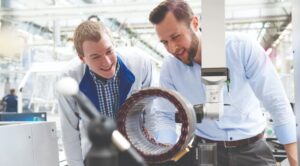
The answer: multisensor systems and adapted equipment
“Accuracy wasn‘t the issue at all,“ emphasizes Philip Kurz. “In traditional engine manufacturing, it is sometimes a question of thousandths of a millimeter. The tolerances on our electric drive are smaller. It was much more a matter of feasibility.“ At the start of 2019, ZEISS and Volkswagen Group Components in Salzgitter began a collaborative project with the aim of finding solutions to these quality assurance challenges. “Once we had defined internal requirements on the sensors, it became clear that the ZEISS PRISMO multisensor coordinate measuring machine was the ideal solution,“ says Kurz. In the chosen configuration, the coordinate measuring machine comes fitted with the ZEISS VAST XXT tactile scanning measuring head, the ZEISS LineScan optical form sensor and the ZEISS DotScan chromatic white light sensor, as well as a rotating swivel unit. Where possible VW prefers to use the tactile procedure for measuring the bundle of laminations on the stator, as this is the most precise method. The virtual installation envelope is inspected using ZEISS LineScan. This digitalizes the winding head in the form of a point cloud, which can then be compared to the target CAD model. The hairpins are measured using the ZEISS DotScan.
To inspect the individual hairpins prior to installation on the stator, ZEISS developed a piece of equipment capable of clamping the hairpins for measurement in precisely the same position they will predominantly be in when they are installed on the stator. “This is by no means a new procedure. It‘s also used in body construction, for example. They call it a master jig,“ says Philip Kurz. “We are now applying this principle to engine manufacturing for the first time.“ Also, for the lamination bundle, ZEISS developed a clamping device which enables the bundle to be secured for reproducible tactile measurement.
A jointly-developed, comprehensive solution
ZEISS‘ hardware expertise was only one of many factors that convinced Volkswagen to partner with them. “Another decisive point for us was that the hardware and the software work together seamlessly,“ said Kurz. “I work with ZEISS CALYPSO for all sensor types. All of the measurement data is collected there, and I‘m able to document everything in parallel in ZEISS PiWeb. This is a comprehensive solution which is unbelievably smart, stable and user-friendly.“ This is particularly important for Volkswagen, since quality assurance of the electric drive is performed right within production. It is not the measuring engineers, but rather the production workers, who conduct random checks on the manufactured and assembled components every day. Pascal Schmidt, who oversees the production workers in these tasks, says they are optimally equipped for this, “With CALYPSO, ZEISS offers a clear interface with images and text which allows the operator to select what he wants to do. The operator inserts the part that is to be measured, enters which machine the part is from, selects the measurement program, and then the rest runs automatically. There‘s virtually nothing that can go wrong.“ And, ZEISS PiWeb is also convincing with its ability to generate meaningful measurement reports quickly and easily, and to clearly visualize the measurement data – including with CAD views, form plots, false color displays and histograms.
Philip Kurz, too, is pleased that Volkswagen Group components have found a comprehensive solution for this latest generation of drives: “I need good equipment from suppliers who understand what is at stake. ZEISS makes outstanding, thoroughly developed products. Those of us in planning are never looking for specific devices, but for a comprehensive measuring solution. ZEISS understands our products and our measuring needs, and is able to develop within its portfolio the ideal solution that best matches our requirements.“ Volkswagen can now focus on meeting their target production quantities. Additional MEB platform models, such as the VW ID.4 electric SUV and the VW ID.5 coupe, are already on the starting blocks. The future of Volkswagen‘s hairpin electric drive is full of potential applications — and thanks to the measuring solutions developed together by ZEISS and Volkswagen, this future is now guaranteed.
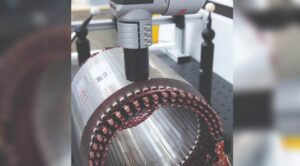
Cookie Consent
We use cookies to personalize your experience. By continuing to visit this website you agree to our Terms & Conditions, Privacy Policy and Cookie Policy.






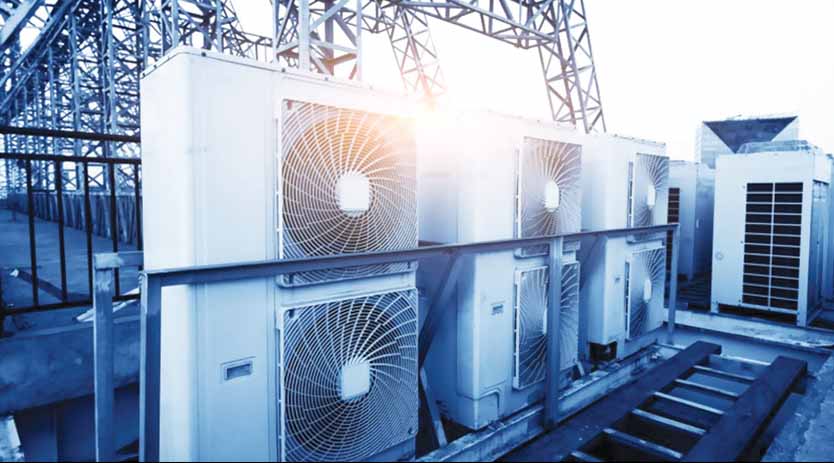
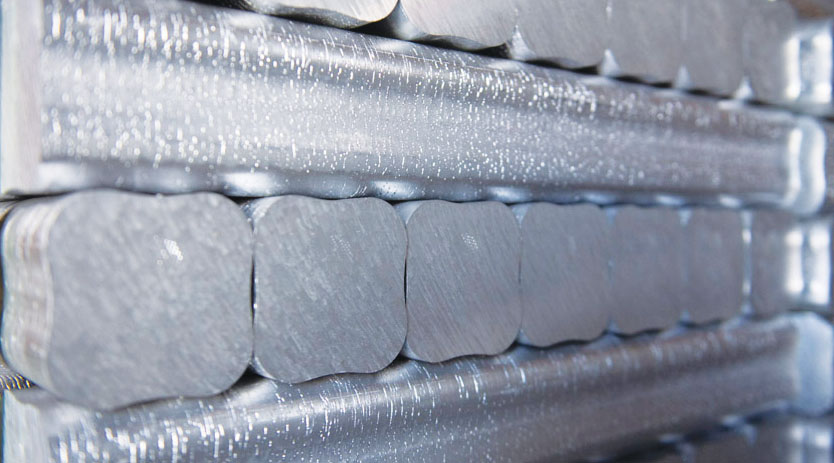
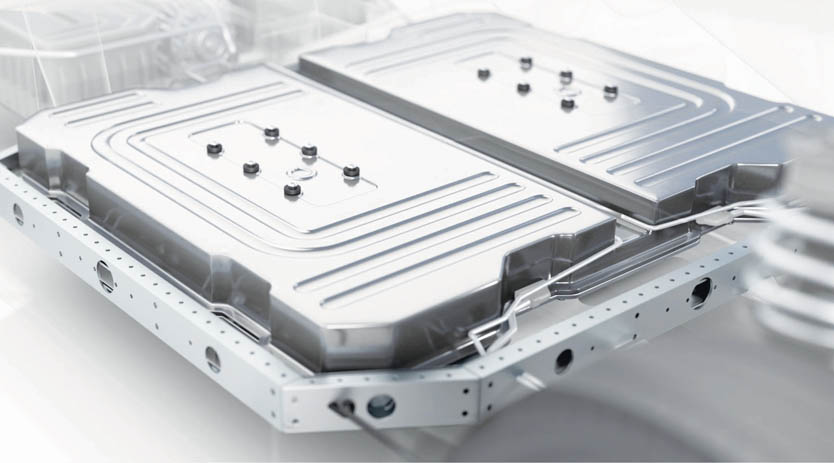
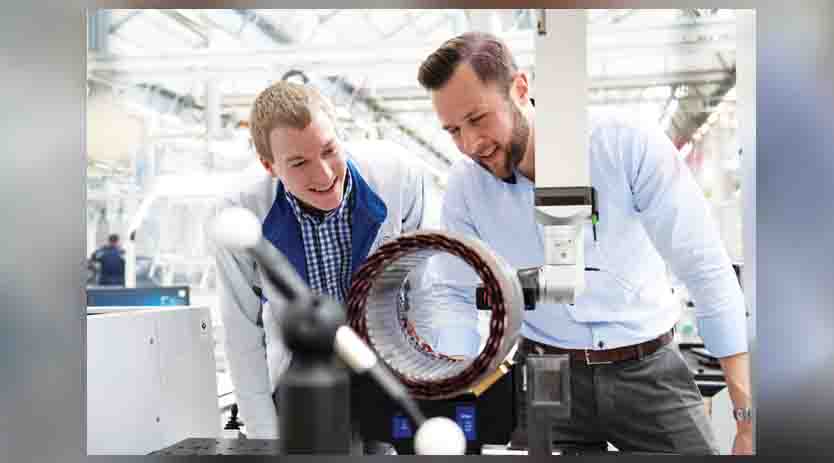
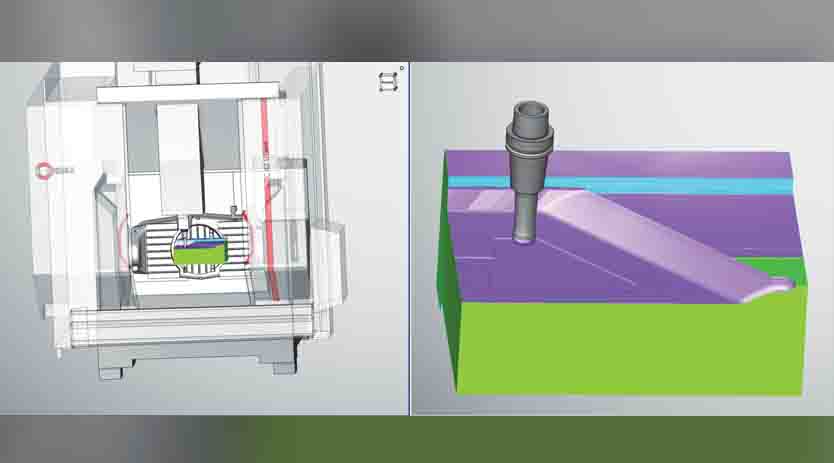
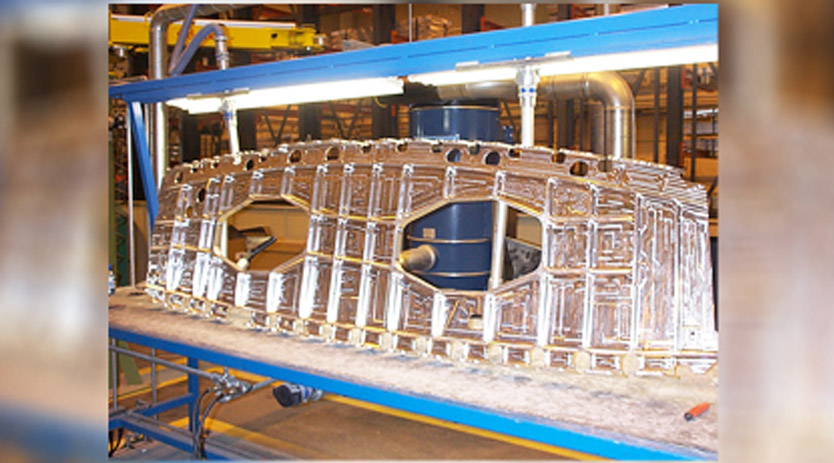







 English
English Hindi
Hindi